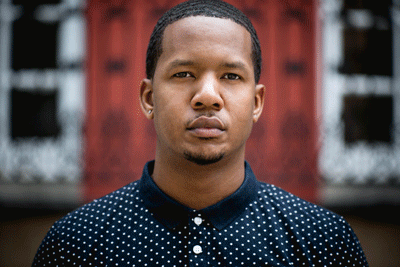Adverse childhood experiences (ACEs) and traumatic stress can negatively impact developing brains and affect behavior, mood and physical health for many years. This was certainly true for me. Growing up in Baltimore, my father was a heroin addict who spent the majority of my life in and out of the prison system. My mother was forced to raise me alone. I saw things that children shouldn’t see and experienced things that most adults never will.
By the time I was 14, I was diagnosed with acute anxiety and mild depression. At the age of 26, I was diagnosed with severe generalized anxiety and panic disorder and mild-severe major depressive disorder. I was losing control of my life and I was desperate to find balance. Occasionally I would spend nights sleeping in my car in the parking lot of my neighborhood hospital. I was comforted knowing that I was only a few feet away from medical help if I needed it. My doctor told me that my disorder was so severe that medication was the only option to effectively treat it— so I complied.
I spent the next two years of my life battling an addiction that I never saw coming. The pills my doctor promised would cure my anxiety created an entirely new, more fatal disease. I was no longer afraid of my anxiety, I was afraid of what my life would look like without my medication. Dependent on pills, my fear culminated into a deep pit of depression and two failed suicide attempts. I began to question everything I thought to be true. I knew it was up to me to change the way I lived in order to save my life.
As I started on a journey of health and healing, I looked at all areas of my life for things that I could improve. At the time of my diagnosis I was running a successful personal training business, so I knew the importance of diet and behavior on my overall wellness. During that time I discovered yoga, juicing and meditation, all of which have contributed to not only saving, but also changing, my life for the better. Since starting a consistent yoga and meditation practice, I’ve been able to break through a lot of the complexities of my life, including many of the traumas I hadn’t addressed. It allows me to be more present and take a step back from my anxious thoughts.
Here are six lifestyle changes I made that helped me on my road to recovery:
1. I get 7–8 hours of sleep each night— A lack of sleep can be a precursor for anxiety or a direct reflection of it. An adequate amount of sleep every night can greatly reduce anxiety symptoms. Turning off electronics about two hours before falling asleep is a good practice to help quiet my mind.
2. I leave work at work— It’s important to set boundaries for yourself. For many people, their biggest stressor is their job. When my workday is over, I turn off my work phone and don’t check emails again until morning. Give yourself permission to have a personal life outside of your career.
3. I check my diet and go green— A diet rich in fruits, vegetables, nuts, seeds and legumes is much less toxic than a diet rich in processed foods, caffeine and artificial sugar. Drinking 32 oz. of green juice (80 percent vegetables, 20 percent fruit) each morning helps me get in those vegetables. If you don’t have access to a juicer or a juice bar, green smoothies will do the trick. Try this:
- – 1 cup of spinach
- – ½ cup of frozen mango
- – ½ cup of frozen pineapple
- – 1 frozen banana
- – 1 ½ cup of water
- -1 tbsp of honey
4. I limit social media— Social media can be overwhelming with other’s opinions and images that immediately invoke comparison. Since anxiety often results in racing thoughts, it is best to be protective of how much time I spend online.
5. I meditate— Meditation helps to bring attention back to the present moment by focusing on the one thing you have control over— your breathing. Meditation helps me detach from my anxious thoughts and learn how to deal with difficult emotions.
6. I read— Whether it’s something tied to your career, self-help or something inspirational, read regularly. Reading helps to reduce stress through distraction and provides the opportunity to gain something powerful – knowledge.
Because we know that trauma and adverse experiences impact well being throughout a person’s life, identifying supportive strategies that enable resilience in those affected can be life-changing. Creating a path to healing is within reach. It is possible.
Join Quentin Vennie and other healing-strategy experts on Wednesday, November 13, 2019, from 9 a.m. to 2 p.m. participating in a community conversation, “Not All Wounds Are Visible – Adverse Childhood Experiences Plus: Knowing What Works” offered by The University of Maryland Medical System and University of Maryland, Baltimore. For more information and to register for this free event, please visit umms.org/community conversations.
